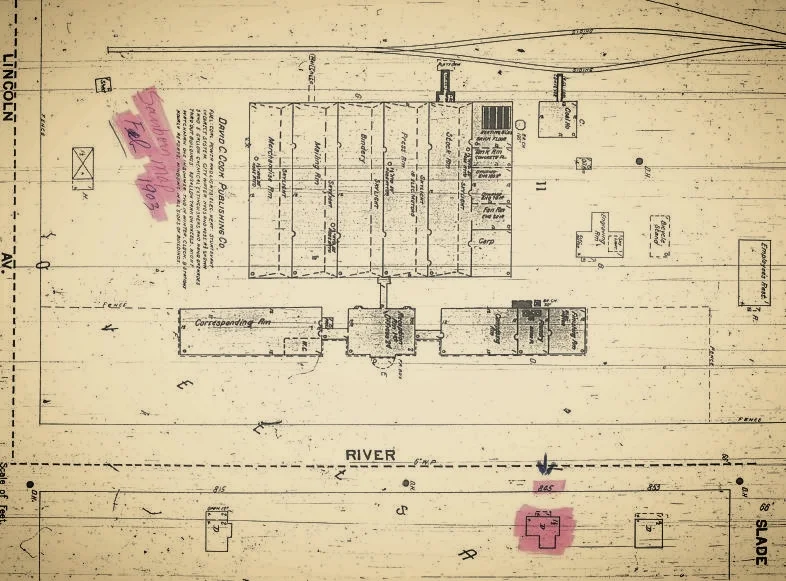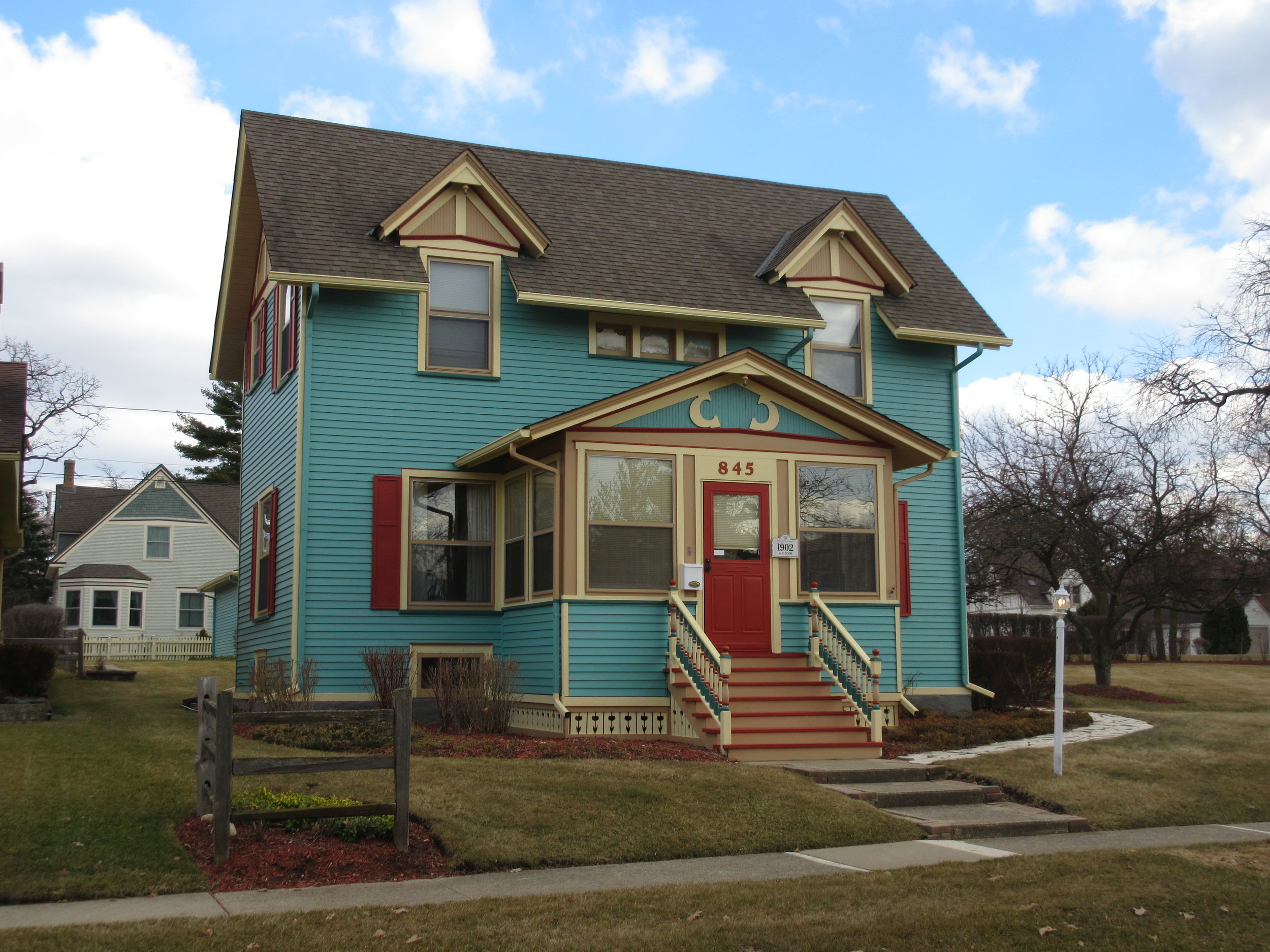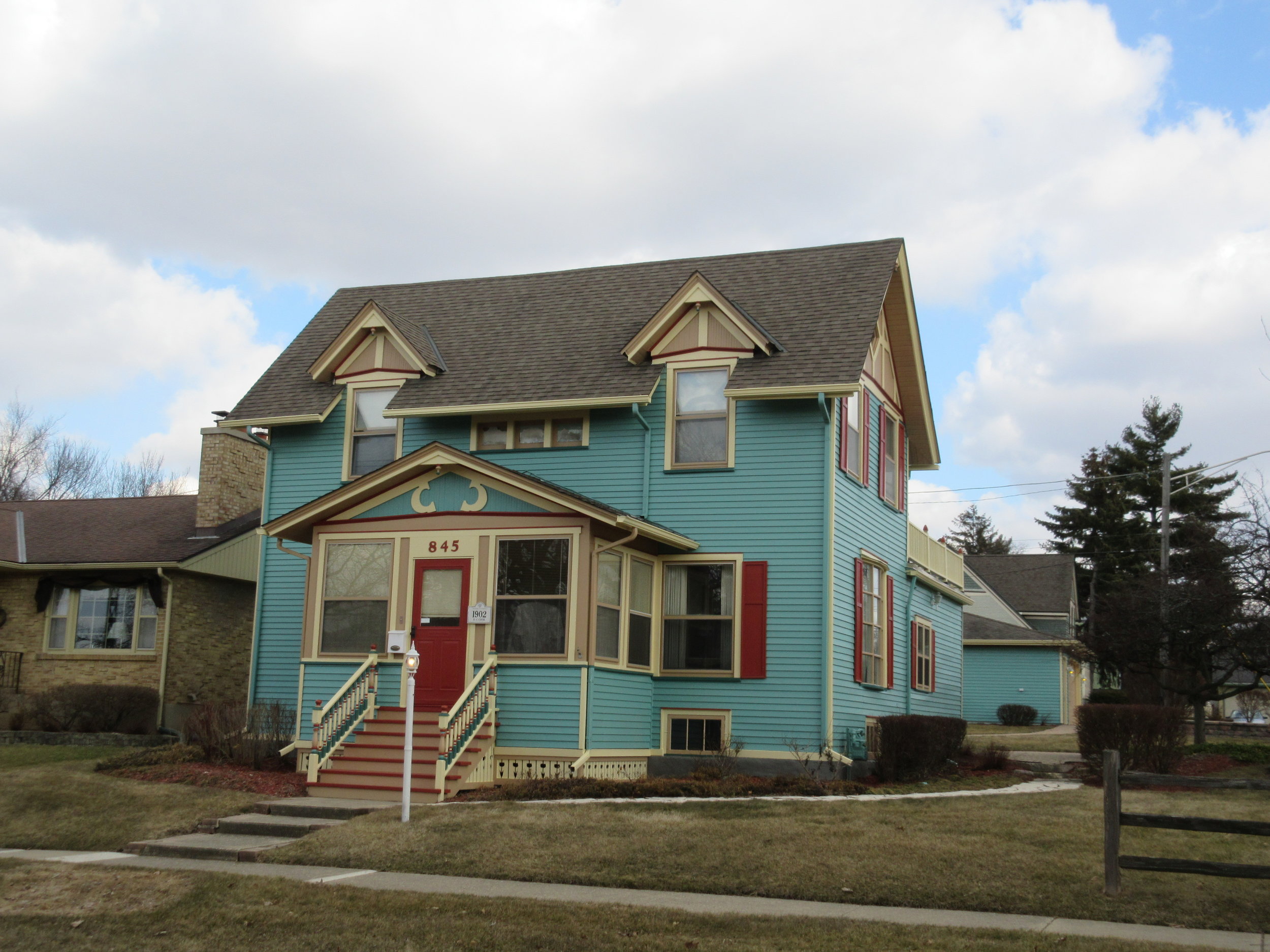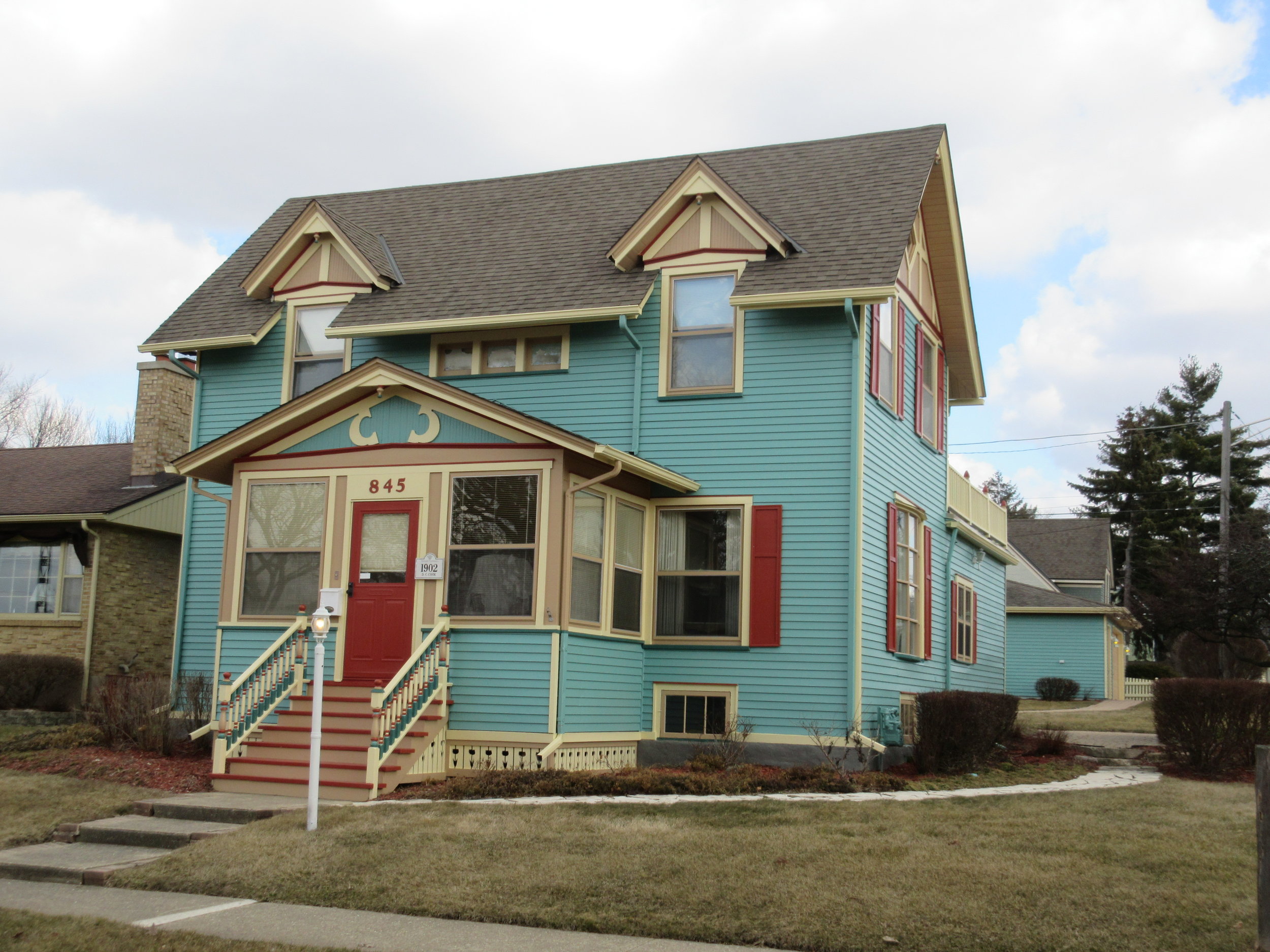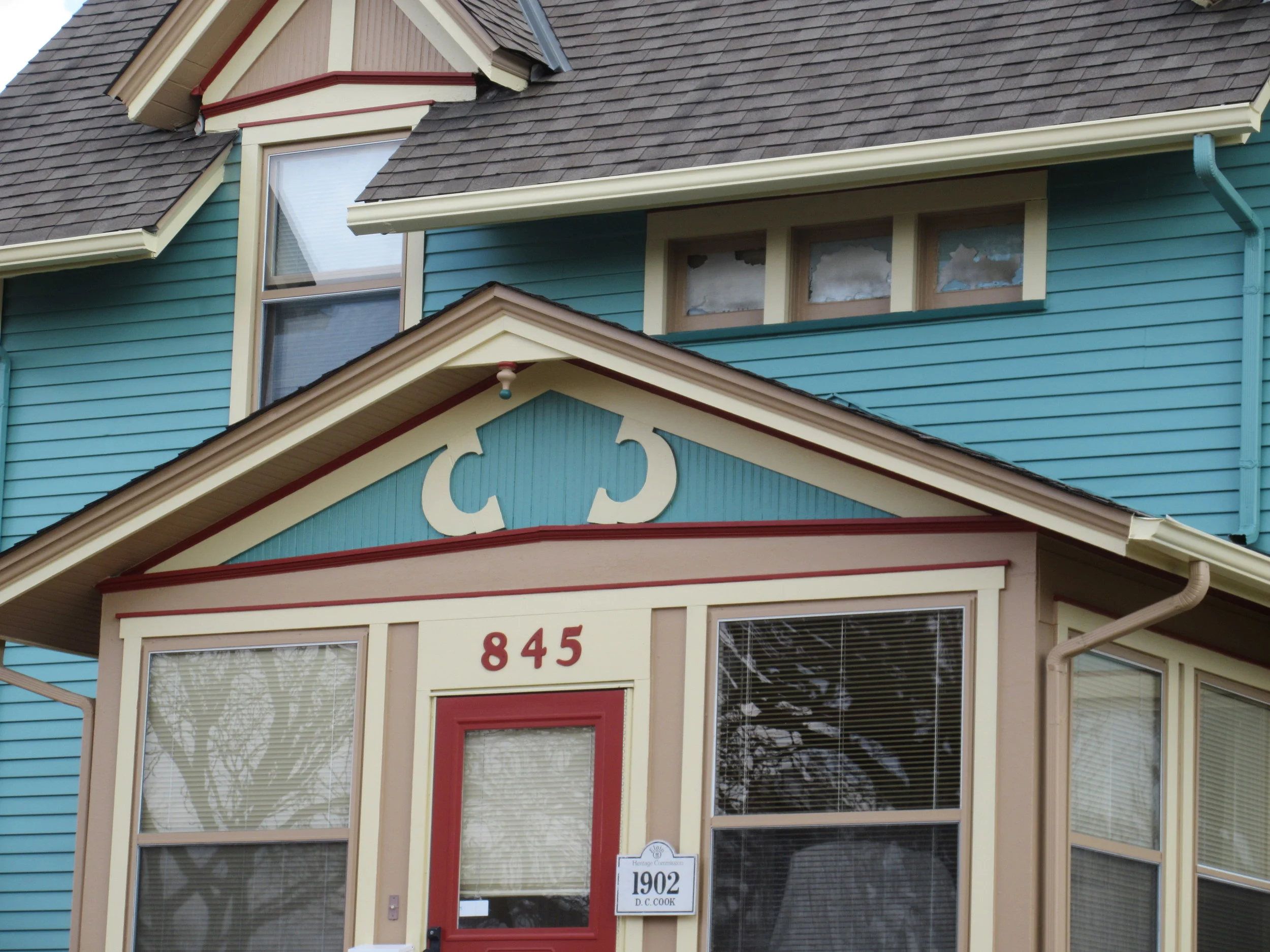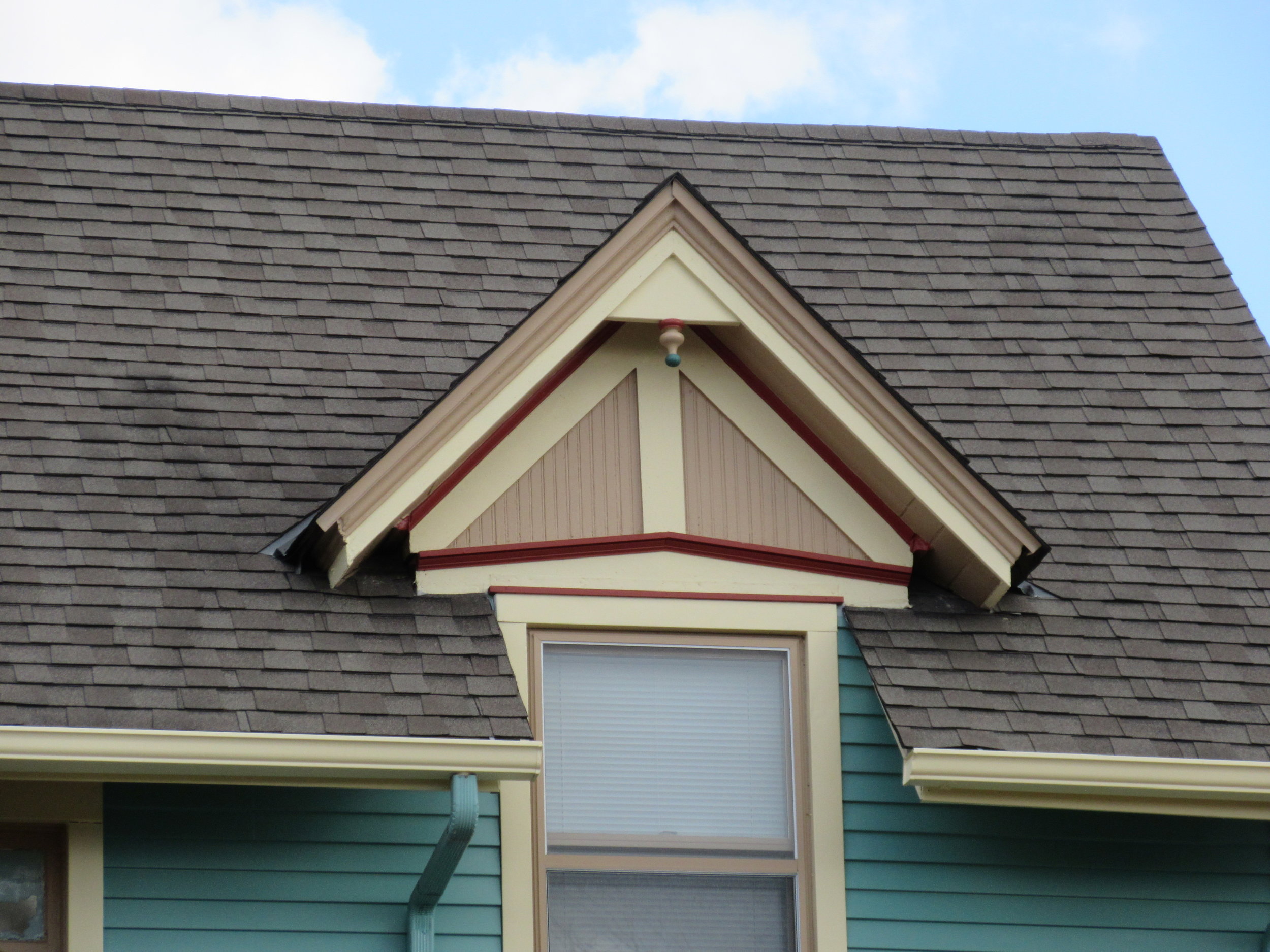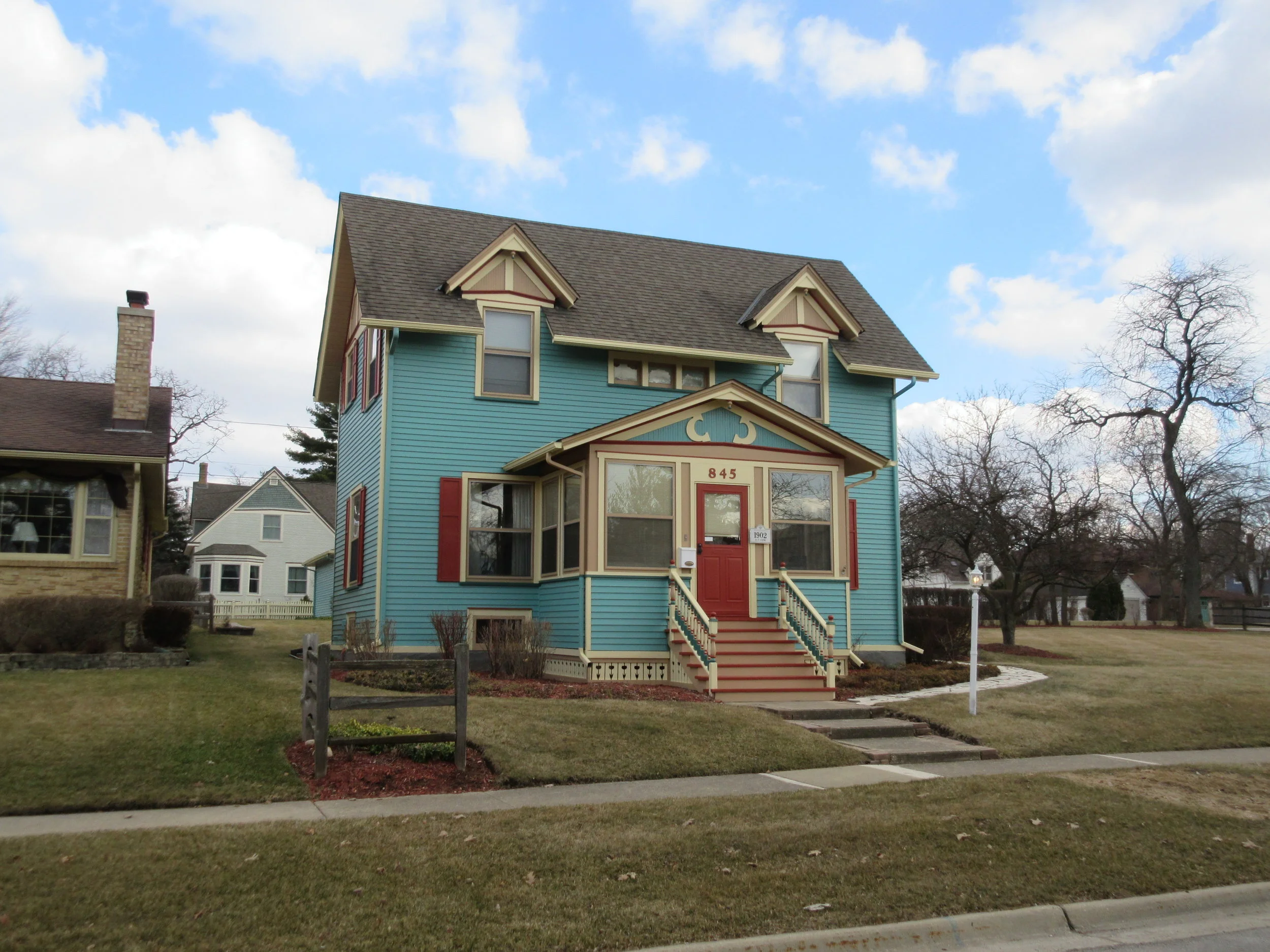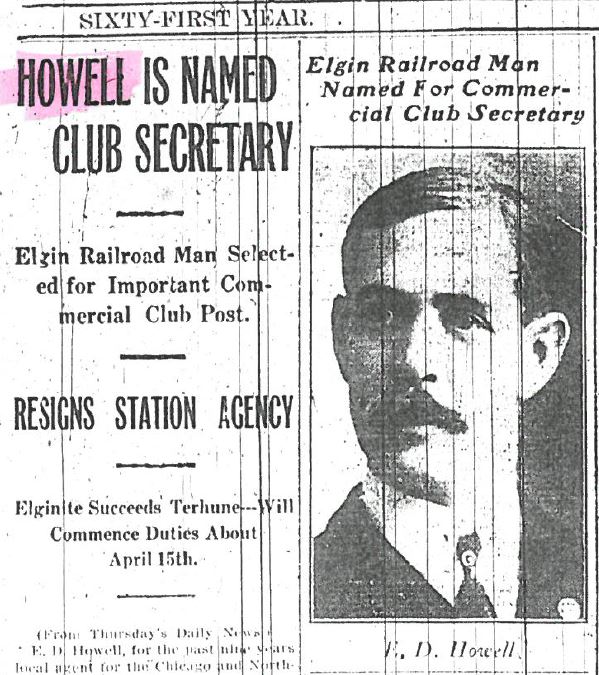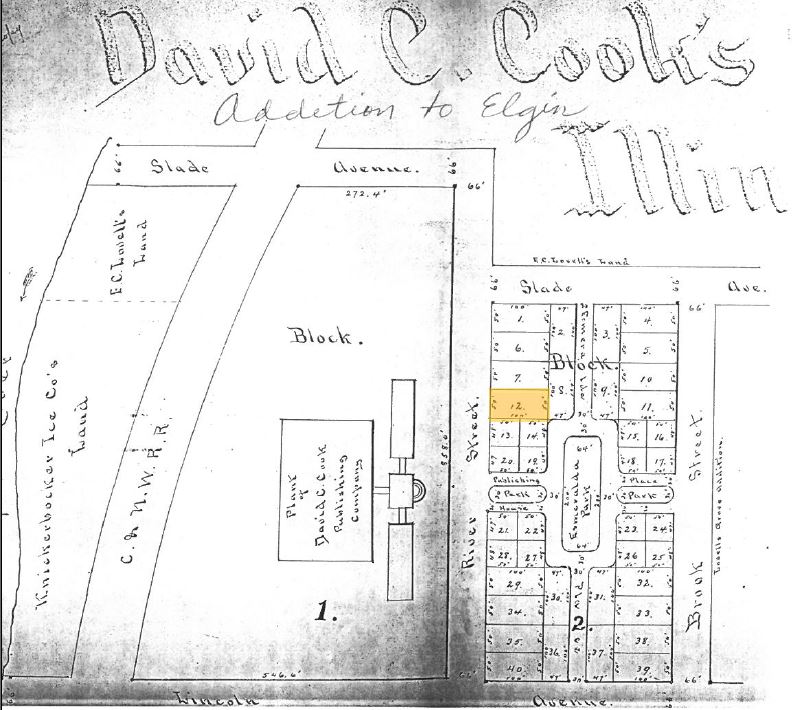845 N. GROVE AVENUE
HISTORIC SIGNIFICANCE
David C. Cook, owner and founder of the D. C. Cook Publishing Company, purchased land from Edward C. Lovell and after it was surveyed and platted, called it the "David C. Cook Addition to Elgin," in December of 1901. Included in this land purchase was the block bounded by Slade and Lincoln Avenues and River (Grove) and Brook Streets. The area was open land with a charming little park in the middle named Esmeralda Park, and had four access lanes to each of the bounding streets. In 1902, Mr. Cook built four houses in the block, one on ether side of the River (Grove) Street entrance and two more within the block.
The house on lot 12 became 845 River (Grove) Street and was built initially as income housing. Elmer D. Howell, an agent for the east side Chicago and Northwestern Railway was listed in the 1903 city directory at that address, probably as a renter. In 1911, Mr. Howell left the employ of the Chicago and Northwestern Railway after 17 years to become the secretary of Elgin's Commercial Club, the forerunner of the Chamber of Commerce. He was paid an annual salary of $2,000 enabling him and his wife, Carrie, to buy the house from Cook in 1912.
ARCHITECTURAL SIGNIFICANCE
845 N. Grove Avenue is a unique National Folk style home that was originally designed in the I-House sub-type, though the home does have a cross gable found at its rear. I-Houses consisted of a two rooms wide and one room deep configuration and were popular among people of modest means as they were considered affordable housing at that time. The addition was likely added around 1913 just after Howell purchased the home. Unique characteristics found on this home are the half timbering found at the gable ends with a diamond pane window, and the two wall dormers with half-timbering at the gables found at the front elevation.
TIMELINE OF PREVIOUS OWNERS
Sources: 1996 Heritage Plaque Application; Audio: TextAloud
